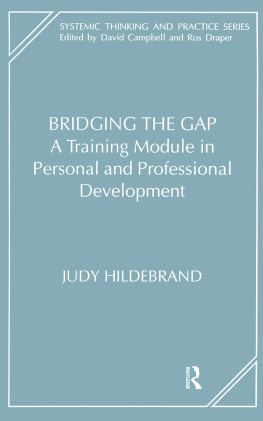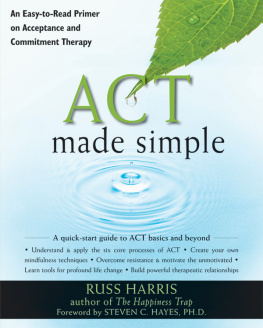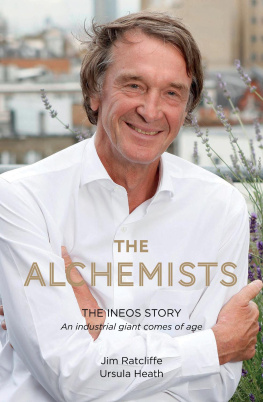I would like to thank all my colleagues at the Tavistock Clinic and the Institute of Family Therapy who provided the opportunity and support necessary to develop the personal and professional development (PPD) modules in both centres.
The original idea for the PPD modules stemmed from discussions between myself and my colleague Dr. Arnon Bentovim. We had previously worked together as co-therapists and as group leaders and were actively involved in the training of family therapists. I would like to acknowledge the importance of his contribution both in the development of the PPD concept and in his role as co-leader of the large group, as discussed in .
I am indebted to Colette Richardson and Frankie Zimmerman for undertaking the unique trainee survey described in and for all their hard work, enthusiasm, and ideas.
A special thank you not only to the trainees who gave their time to participate in the consumer survey but also to all those trainees who have taken part in a module and thereby helped to fashion it.
I am grateful to Bebe Speed for her invaluable comments which were both constructive and encouraging at the draft stage. Thanks also to Brenda Cox from The Family Institute in Cardiff and Barbara Warner from the Prudence Skynner Unit in London for sharing their ideas about trainees' personal and professional development during training.
Finally, I would like to thank Helene Curtis for her continuing support and encouragement.
For some, the dust is settling over the development of family therapy technique, and therapists are re-discovering the basic processes that make therapy work. For example, there is increasing interest in the nature of the therapeutic relationship and the use of the self in family therapy, and this is reflected in training courses that emphasize the personal growth and awareness of the therapist. Judy Hildebrand is known throughout the family therapy field as someone who has always spoken for integrating formal aspects of therapy training with personal development, and she has designed and run such workshops for courses in Britain and Europe for many years.
The book presents a thorough discussion of the thorny issues about what makes a good therapist. Is personal development different from therapy? Should therapists in training have personal therapy? If so, should their own families be involved in some way? What is the most appropriate way to build personal development into the structure of a training course?
The heart of the book consists of the exercises that Hildebrand has used in her workshops over many years. They have been refined and honed, like polished gemstones, through the trial-and-error process that can only be sustained by a very experienced trainer, and they are presented in an accessible form that clarifies how to run the exercises and what pitfalls to avoid. Some exercises are about families of origin and their relation to our "trigger" families, and others focus on the way we develop our own style and techniques. But the picture would be incomplete without understanding the effect that the exercises have on personal development, and for this volume she is joined by Collette Richardson and Frankie Zimmerman, two colleagues and ex-trainees, who have collated the experiences of a range of trainees from the courses and are able to complement Hildebrand's ideas with the voice of the trainee.
The book opens a very important debate for the family therapy field. At a time of treatment rationing and standard setting, it aptly draws our attention to an issue of increasing importance: training the highest-quality family therapists. In addition, it offers trainers and supervisors an invaluable "how-to-do-it" guide to tried-and-tested methods of taking trainees through a programme of personal and professional development.
David Campbell
Ros Draper
London
March 1998
Gill Gorell Barnes
Family therapy training in Britain has now been established for over twenty years, yet many issues about the requirements of training within the field remain unresolved. One of the missing agreed ingredients in the variations of the training recipe has been the "person of the therapist" and the therapists' use of self within the work that they do. Is "the use of self" important, and how is "self" to be defined within a framework that sometimes argues for a multiplicity of contextually defined selves rather than a "core" self? Put a slightly different way, how are training courses to develop the appropriate complexity within trainees' thinking and responsivity to equip them for the variety of complex interpersonal encounters their work is likely to entail? A major stumbling block in training has been to find a model for attending to such questions which offers overall congruence to a systemic approach to work with relational systems, rather than relying on a model of individual "therapy for the therapist" seen to devolve from an intra-psychically oriented model.
The United Kingdom Council for Psychotherapy and the recent introduction of a European Certificate in Psychotherapy have each made it a requirement for qualified practitioners in all forms of psychotherapy to have done "personal work" for some hundreds of hours as part of their qualifying training. While many therapeutic trainings have not seen psychotherapy based on a psychoanalytic model as suiting their own form of training, and many have substituted the experience of the kind of therapy that they are teaching as part of what the trainee must undergo subjectively, family therapy and systemic training has never decided that therapy for therapists within the context of their own family should be a part of the training of all family therapists. Some courses have had discussions about "bringing the family of the trainee in" as part of the training experience, but this has never, to my knowledge, been mandatory and, indeed, might be seen by many families as an infringement of civil liberties. If work on the "self", however defined, is to be a training requirement with sufficient depth and meaning, how then is it to be done?











